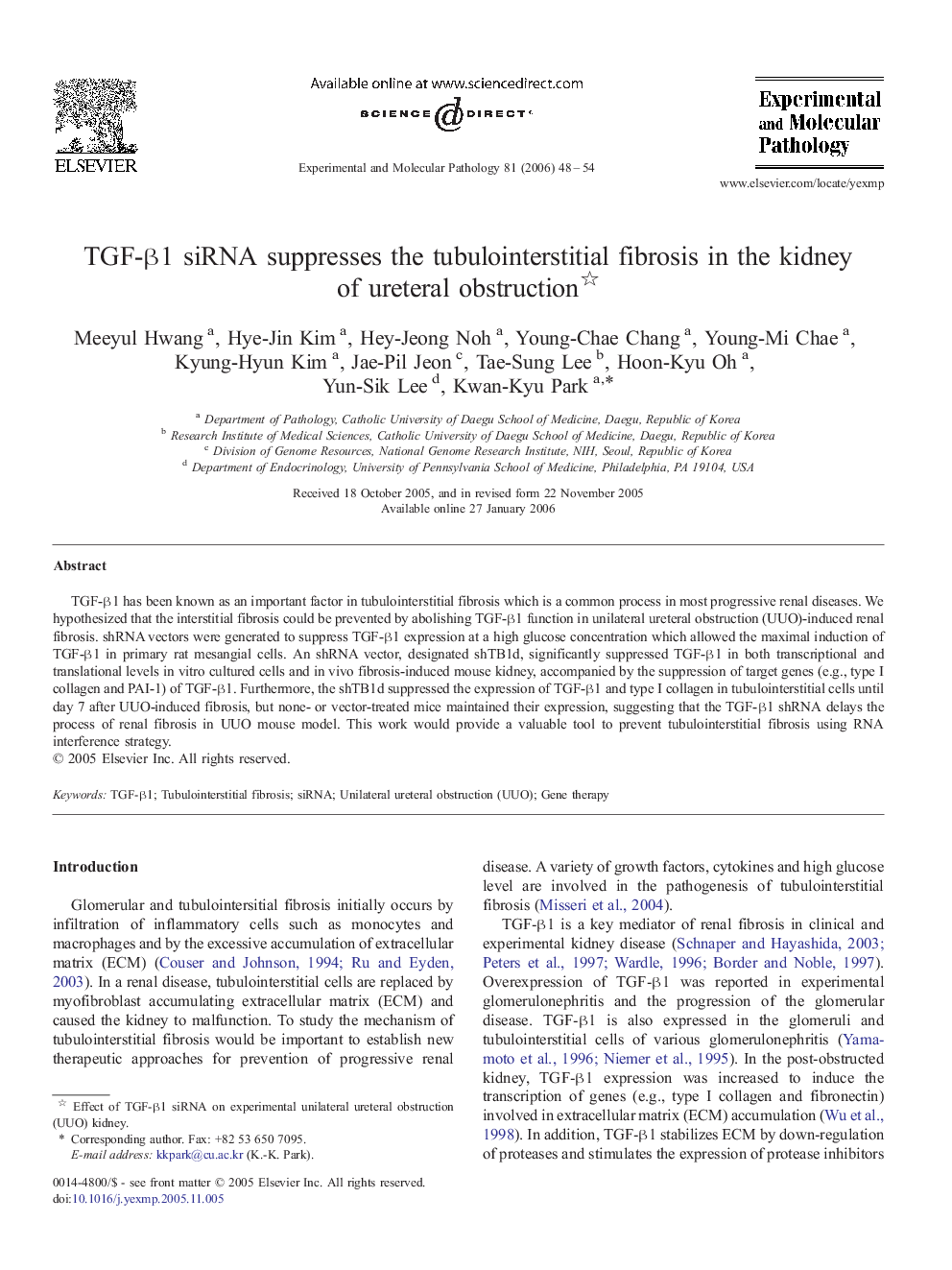| Article ID | Journal | Published Year | Pages | File Type |
|---|---|---|---|---|
| 2775981 | Experimental and Molecular Pathology | 2006 | 7 Pages |
TGF-β1 has been known as an important factor in tubulointerstitial fibrosis which is a common process in most progressive renal diseases. We hypothesized that the interstitial fibrosis could be prevented by abolishing TGF-β1 function in unilateral ureteral obstruction (UUO)-induced renal fibrosis. shRNA vectors were generated to suppress TGF-β1 expression at a high glucose concentration which allowed the maximal induction of TGF-β1 in primary rat mesangial cells. An shRNA vector, designated shTB1d, significantly suppressed TGF-β1 in both transcriptional and translational levels in vitro cultured cells and in vivo fibrosis-induced mouse kidney, accompanied by the suppression of target genes (e.g., type I collagen and PAI-1) of TGF-β1. Furthermore, the shTB1d suppressed the expression of TGF-β1 and type I collagen in tubulointerstitial cells until day 7 after UUO-induced fibrosis, but none- or vector-treated mice maintained their expression, suggesting that the TGF-β1 shRNA delays the process of renal fibrosis in UUO mouse model. This work would provide a valuable tool to prevent tubulointerstitial fibrosis using RNA interference strategy.
